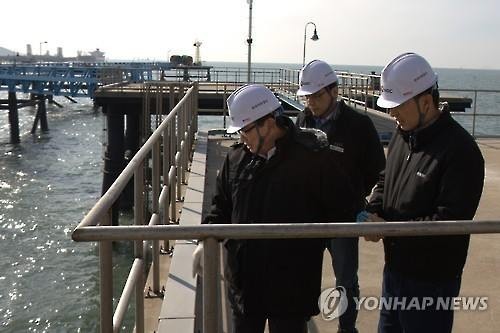State-run energy-related companies suffered huge losses in 2015 as they were hammered by crippling debt and sinking commodity prices, government data showed Wednesday.
The three public energy firms -- Korea Water Resources Corporation (K-Water), Korea National Oil Corp. (KNOC) and Korea Resources Corp. (KORES) -- chalked up combined losses of more than 12 trillion won ($10.4 billion) last year, according to the data by the finance ministry and the All Public Information In-One government web site.

K-Water registered the largest-ever net loss of 5.8 trillion won last year, stung by huge debt that resulted from a big-budget state project to refurbish the country's four major rivers. In 2015 alone, the company took as much as 5.6 trillion won in debt off its balance sheet.
KNOC trailed with a net loss of 4.5 trillion won, also the biggest in its history, as the company was stung by slumping oil prices and a drop in the value of its upstream assets.
KORES posted a net loss of 2 trillion won in 2015 as falling prices of copper, nickel and other base metals eroded the value of its stakes in mining projects.
The huge loss of the three companies contrasted with the total net profit of 4.6 trillion won posted by all 30 state-run companies.
Korea Electric Power Corp. reported a net profit of 13.4 trillion won last year, with state-run housing developer Korea Land & Housing Corp. (LH) registering a profit of 980 billion won. The bottom line of Incheon International Airport Corp. came to 770 billion won.
The data also showed the three state energy companies sitting on a mountain of debt and ranking among the top 10 most heavily indebted public firms.
KNOC's debt rose 2.6 percent on-year to 19 trillion won, placing fifth in the list. KORES ranked eighth with 4.6 trillion won, which jumped 14.9 percent from a year earlier. Helped by state support for debt reduction, K-Water saw its debt edge down 1.4 percent to 13.3 trillion won, but it came seventh.
The government, meanwhile, is scheduled to unveil a plan next week to adjust the functions of state companies in the energy, environment and education sectors. (Yonhap)








